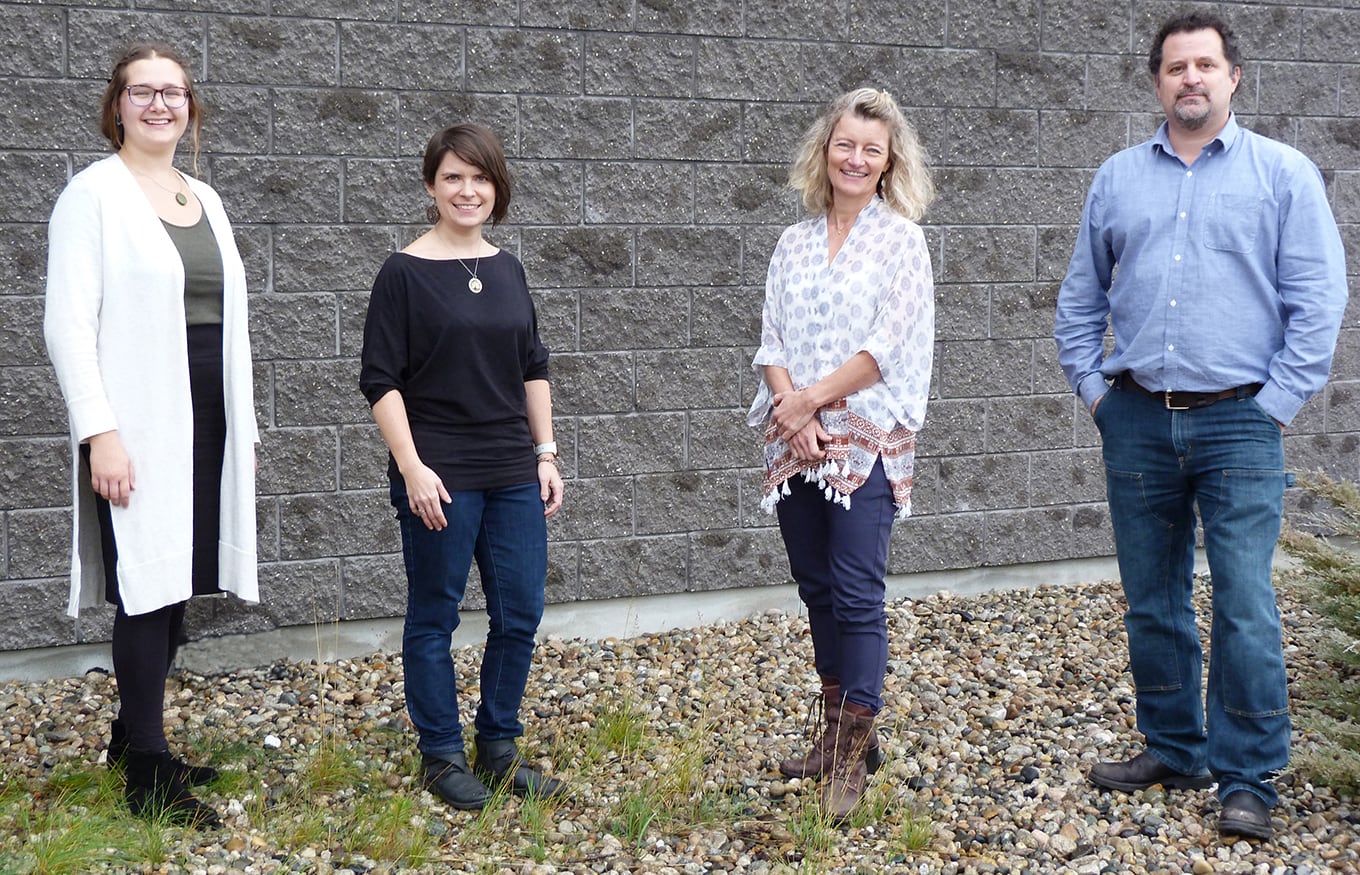Mir Centre Awarded Funding to Research Paths Beyond Polarization
To tackle daunting social and environmental problems, respectful collaboration among diverse perspectives is key. A project led by a research team at Selkirk College aims to find effective strategies to move beyond intense differences to better meet our common goals.
The Mir Centre for Peace and the Applied Research & Innovation Centre at Selkirk College have been awarded $360,000 to carry out an applied research project over three years that looks into the best tools, practices and other types of interventions that can help communities overcome polarization. In partnership with Capilano University and Vancouver Community College, and supported by several British Columbia non-profits, work on the Courageous Dialogues: Building Capacity to Transcend Polarization in Civil Society project began earlier this fall.
“This is not about just bringing people who vehemently disagree into a room and hoping they can hug and make up, I suspect that is naïve and could fail spectacularly,” says Jennie Barron, project director and Chair of the Mir Centre for Peace. “
Moving beyond polarization requires a big shift in how we engage with each other around contentious topics. For one thing, we need to make distinctions between the positions we take on issues, and our value and dignity as human beings.
People are not just their ideas. We can disagree, but still respect and like each other.”
Funded through the federal government’s Community Colleges Social Innovation Fund, the Selkirk College proposal was one of 28 successful proposals chosen from the 115 submitted by post-secondary institutions across the country.
A team of seven researchers and student researchers are currently working on the project, four of whom are affiliated with the Applied Research & Innovation Centre in Castlegar.
Communities in Canada and across the world are experiencing acute social and political divisions around issues such as health care, climate change, discrimination, equity and economic priorities.
The project will work towards building the skills, capacity and ability to seek understanding of how we’ve come to such polarized views on so many issues of social concern. A main focus is to cultivate curiosity and compassion for diverse viewpoints instead of intolerance for those with whom we may disagree.
“Often people are feeling they are tip-toeing around each other, avoiding certain conversations with friends or family for fear of triggering a polarizing interaction,” says Jan Inglis, a Nelson-based social scientist who is serving as a consultant to the project. “This avoidance can also create problems in collaborating in the workplace, eroding the ability to make effective team decisions. This can eventually impact how resilient our communities are.
“It would be great if we could just wave a magic wand and get along. But to understand why we have formed different views takes time, motivation and skill to develop processes that help us deal with the messiness of interactions.”
Participating partners include New Stories, Decoda Literacy Solutions, the Columbia Basin Alliance for Literacy, and the Continuing Education and Training Association of BC. Some of these non-profits will serve as sites of research, providing information about where they see polarization affecting their organizations and programs, and where they see needs and opportunities to overcome it. The organizations will then pilot new approaches and interventions as they see fit.
“This is not about saying that all beliefs are equally valid or that there are no facts and truth in the world,” says Jenn Meilleur, executive director of New Stories.
“It’s about looking and listening more deeply to understand, compassionately and with curiosity, where each other’s beliefs are coming from and what has led us to arrive at such polarized views.”
Politics has become as much about identities as it is about issues and policies. Over the next three years, researchers will be reducing communication barriers as they work on finding a better way forward.
“With this one project, we can’t expect to solve the problem of polarization once and for all, everywhere,” says Jayme Jones, a Selkirk College faculty researcher working on the project.
“It’s about finding the tools and practices and ideas that work best for our communities and that fit with our strengths as educational organizations. We are finding ways we can have leverage to make a difference.”
To learn more about this project, please email mircentre@selkirk.ca.
Photo Caption: Four of the team of seven researchers working on the Courageous Dialogues: Building Capacity to Transcend Polarization in Civil Society project that are based out of the Selkirk College Applied Research & Innovation Centre in Castlegar include: (L-R) Leeza Perehudoff, Jayme Jones, Jennie Barron and Pablo Pastor.


























